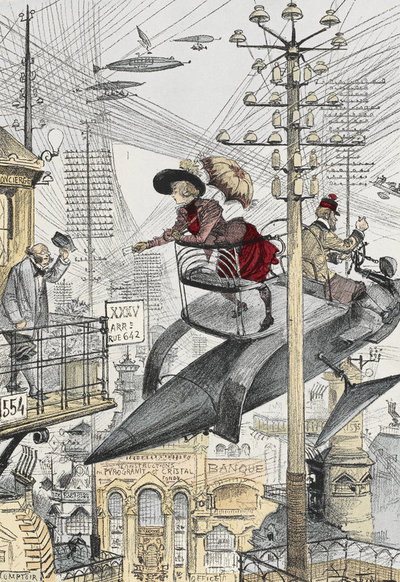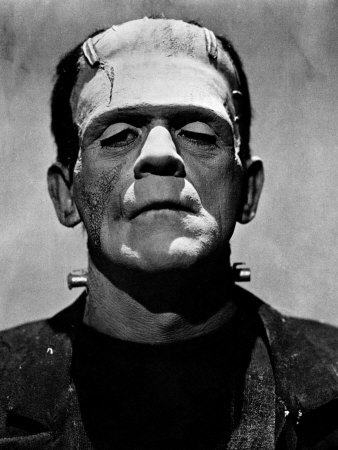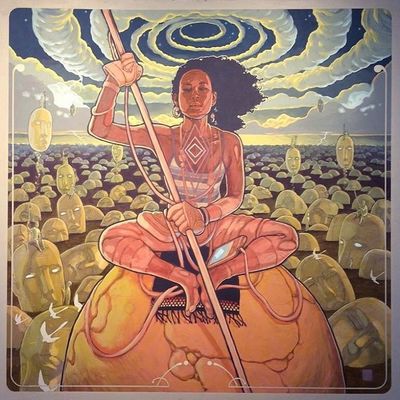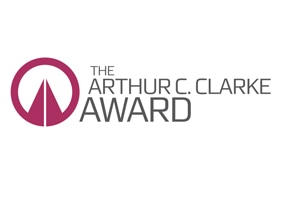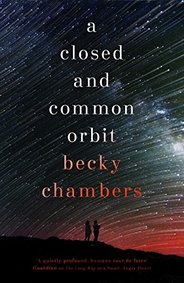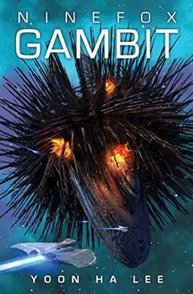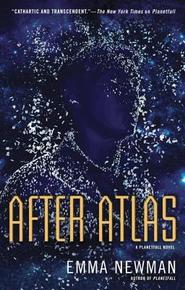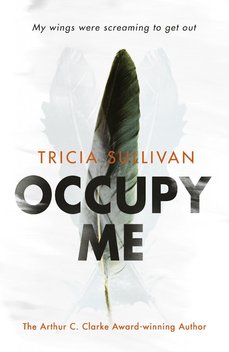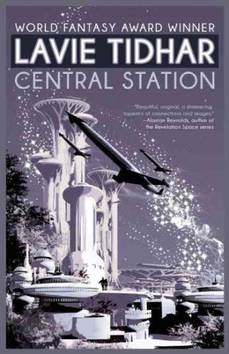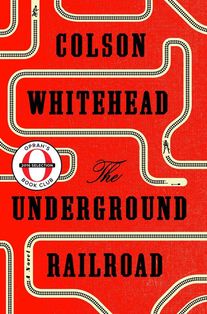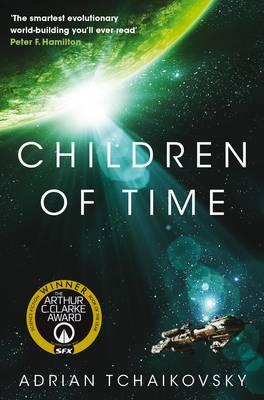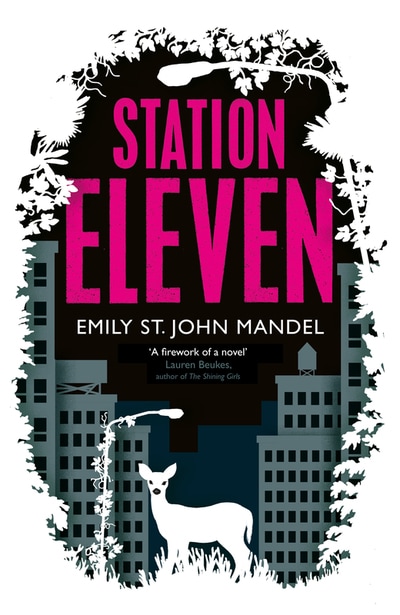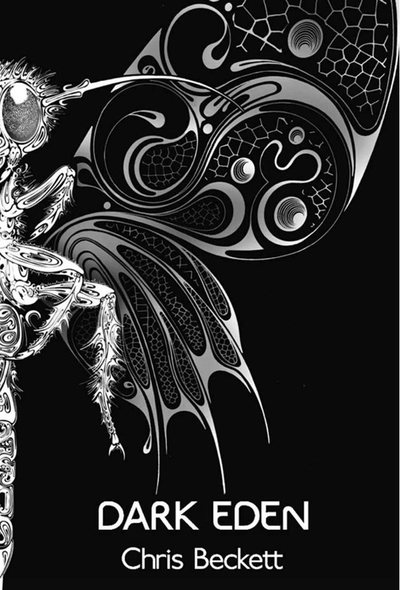|
Matt from Runalongtheshelves and I were eagerly waiting for the Clarke shortlist. Here it is and we started chatting about it. (Please note that this is a conversation, as indicated by the word "Conversation" in the title of the post. For the reviews, you can head to the "Reviews" section of the site or follow the links.) C. Here comes the Clarke! I may have mentionned (oh, just once or twice...) that this is my favourite scifi award. I always discover some great stories and authors thanks to it. I may not always agree with the winners, but that doesn't happen often. So it's always very eagerly that I'm waiting for the shortlist. And this year... Oh boy, this year... Well, it was not what I expected! I had decided to read a few novels from the submission list (I ended up reading 23 out of the 87 submitted) and I made some amazing discoveries: The Arrival of Missives by Aliya Whiteley, The Power by Naomi Alderman ; This Census-Taker by Miéville which was a fascinating read and also a challenge, Hunters and Collectors by M. Suddain was fun and I spent an enjoyable moment reading it ; also books I had read before the submission list and loved: After Atlas, Azanian Bridges, Mother of Eden... So let's say that I was a bit disappointed when I saw that almost none of my favourites made it to the shortlist! For some novels, it wasn't a surprise, for others, yes, it was a real disappointment. On the other hand, this shortlist challenges my expectations and my preferences, and that, in itself, is very interesting too. When the shortlist was published, I had read all bar one novels on it. Matt The Clarkes recently feel reborn and purposed. A few years ago it was in serious danger of disappearing but it feels like a full and warmly received award that actually likes to have a conversation with the genre. It provokes debate as to what SF is and what books should represent the field. I really like the look of this year's list. It's an impressive list that adds a bit of everything. It feels to be like pointing to where the type of SF we are going towards. We can discuss more for me a theme of today's writers taking old ideas and retooling them to work for today. I am just finishing off one book but otherwise read all others (more by luck than design!)
C. A Closed and Common Orbit, we meet again! Since I always make a point of reading all of the Clarke shortlist, I had engaged myself to read at least two chapters of it despite having strongly disliked the first volume. It is now done. Guess what? I still don't get the hype. I'm honestly happy that Chambers' novels are so well loved because I can feel free to say that I really dislike her writing even if felt less awkward than in A Long Way to a Small Angry Planet. If she stumbles upon this post, I hope she'll be able to shrug off my comment by knowing that her novels are loved by many many others. As far as I'm concerned, I won't read further than those two chapters. Matt Well not all books work for everyone my friend but I have I say I thought this was excellent. Long Way for me is a perfect beautiful look at an idea future and a warm bath in positivity as well as a look at relationships and found family. But I was really impressed here that Chambers didn't take the easy option but went off into a really well plotted focused story looking at just two peripheral characters. On top of which has weaving narratives from two different periods. I'm not sure how far you got into the book but the tales of how various clones re enslaved I found quite disturbing. I loved the theme of gender identity not simply the old plot of is an AI alive but how you get to live the life you want to and not that which society demands you take. I read this in November and I find thoughts come back to it quite a lot. An author I am totally ready to read their next book. (Matt's review of A Closed and Common Orbit.) C. I honestly feel as if I'm missing out something. I'll probably come back to her stories in a few years when her writing, which is the main sore point for me, will have evolved (because each and every writer's style change over the years, whether readers like it or not).
C. Miltary scifi isn't my cup of tea. Right, so now having said that, I also have to recognise that I nonetheless enjoyed reading The Expanse and that I love The Culture and the early Vorkosigan Saga novels which are, very often, military scifi. But I laboured through most of Ninefox Gambit: I couldn't engage with the plot nor with the characters that felt too stereotypical to me. While the world building was quite interesting, the pace was awry at times. Nonetheless I kept on with it and the ending redeemed that. In the end, I would say that Ninefox Gambit does less well what The Culture novels did better but it has its own voice and its own strong points. Matt I think one I find the best things about SF is that all the sub genres themselves allow a lot of flexibility as you note. For me the military aspects of Gambit aren't the bits that I latched into. What I loved in our uncertain times is the way it questions society, loyalty and truth. The idea of a civil war based around calendars isn't the weirdest thing in the book and at the heart is the fascinating relationship between the upcoming new officer Cheris and her undead potentially insane military genius Jedeo. Is there just an agenda of revenge, rebellion or just insanity? This book didn't not give a gentle learning curve to understand the universe itmeans the reader has to work to understand it. Tricky to do and Lee does it brilliantly. Totally deserving of the acclaim and I'm looking forward to see where this series goes next. C. I find it interesting that you liked the themes. To me they were ok. I've prefered how they were done in the City series by Robert Jackson Bennett for instance or in After Atlas which did a great job tackling truth and loyalty themes.
C. I've read both Planetfall and After Atlas earlier this year. To me, the fact that Planetfall wasn't shortlisted last year was a real shame as it is a novel that's powerfully written, that tackles mental health issues - something which isn't tackled often enough in scifi - and that linked wonderfully to 2001. I feel less enthusiasm for After Atlas because it's mainly a scifi noir novel, something I'm less keen on, and I engaged with its main character less than with Planetfall's main character. But I loved it nonetheless and I'm really happy to see it on this shortlist. I loved the world building, I loved the political ideas and the ending left me gobsmacked, precisely because I also know what happens in Planetfall. Emma Newman has recently announced that there would be a third novel set in this universe and I can't wait to read it even if I'm not sure that it will show us how After Atlas and Planetfall's threads meet. Matt I'm just in the process of finishing it off. The world it's created is excellently thought out and chillingly possible. Newman I think has been getting stronger and stronger over recent years. The Split Worlds series I think is an excellent use of fantasy to show up the horrors of sexism while all the time giving you an amazing world of quite quite evil fae. Her skills in SF were then demonstrated in the SF colony mystery Planetfall which as well as being a great puzzle had a fascinating lead character with one of the best looks at grief and anxiety I've read. Intrigued how this story uses the same universe C. I'm really looking forward to reading her Split Worlds series. It sounds like my cup of tea and the last volume being due soon, I'm looking forward to it.
C. Occupy Me was a frustrating read to me for many reasons. On paper, it had everything I love in a scifi novel: folded universes, intriguing characters and a strong plot. But reading it didn't deliver what I was expecting. At times, I felt as if I had missed a chapter somehow (I checked and no I didn't). At others, I felt as if I was reading something that kept repeating itself with slight variations without ever bringing anything new to further the plot. I had loved Dreaming in Smoke which had won the Clarke in 1999, but since then, I've been less enthused by Sullivan's subsequent novels. They've felt to me as if something, somehow, was missing. And, sadly, this latest is no exception. But I'm happy to accept that it's just a matter of personal taste. Matt This was my first Sullivan and I am now going to be looking for her back catalogue. For me the plot was good but the way the story is told was beautiful. Some stunning imagery and a section on an angel thinking about the meaning of love was one of the best sections of writing I've read this year. SF can be criticised for ignoring emotion but this felt wonderfully heartfelt. A 270 page novel that goes from far past to end of the universe is like the lead character packed with hidden depth.
C. Central Station felt to me like when I'm in a modern art museum. I appreciate the artistic performance, I can see where the artist is going, the technique they used, often with great talent, and... it leaves me completely cold. The concept of Central Station, marginalised people left in the shadow of a space station while the rest of humanity goes exploring and colonising space was in itself something I could have loved ; the form used, a collection of sketches, to observe different aspects of these marginalised lives, including new forms of life, and their pleas or dilemmas, was a brilliant idea. But, as I said, it left me completely cold. I recognise the literary achievement, I recognise it is to be praised as it observes aspects of society rarely seen in scifi and that shouldn't be forgotten especially as we move always faster towards the future while still having a highly inegalitarian society. But. Matt I went that extra mile then as it chimed with me a lot. It's a great setting and the use of characters weaving in and out of each other's stories was for me beautiful. The tale of the space vampire really stood out but we have sentient religious AI, lost lives reunited, potentially immortal rag and bone men. It's constantly inventive and took a lot of golden age SF ideas and gave then an emotional punch they'd not had previously. My only quibble is sometimes it felt like short stories collected rather than a pure novel in its own right but I think it deserves recognition. C. I completely agree with everything you've just said. It's awful because I perfectly see why I should love it and... No, it didn't work. But regarding what you said above about the future of scifi, I think Central Station is to me the most modern novel there is on this list. It has, to me, faults. But it's definitely leading the way into a very interesting direction and from what I've read lately (novellas and/or stories about disinfranchised people who and/or golden age SF tropes revisited) it's a direction that many are taking. When we were talking about the Hugos, I was complaining that most titles on the shortlist didn't bring anything new to our favourite genre, but I think this novel in particular does.
C. The Underground Railroad is wonderfully told. The Underground Railroad has great characters, a strong plot, political ideas I enjoyed, makes us dive into the characters' pleas and the awful unfairness of their lives. The Underground Railroad is a remarkable novel. But I didn't read it as scifi. It may be because I know next to nothing to 19th century American History: I had to use Wikipedia after having read it to check where the novel was diverging from the actual U.S. History. It's a novel that blur the genres, which is something I'm not averse to, some sort of scifi realism rather than the usual magical realism, but in that case its presence in an unabashed scifi shortlist, for an award that usually crowns unabashed scifi novels is surprising to say the least. I've loved it and recommended it since reading it, usually along with I, Tituba, by Maryse Condé which is an old favourite of mine (magical realism). But if I were a member of a jury for a scifi award, I wouldn't vote for it. Matt I agree a great book for me it's using an old fantasy style similar of leads wandering through a magical set of worlds but here it's cities or towns each of which studies racism and how it can be manifested. I think it therefore deserves a place of recognition and that does make me wonder if future political fantasy could be allowed. It's haunting and casts a very honest eye on a period I don't think many here in the UK fully understand the scale and horror of. C. What seems interesting to me in this shortlist is that they are all, with the exception of The Underground Railroad, stories with strong, sometimes even worn, scifi concepts. Space features heavily in Ninefox Gambit and A Closed and Common Orbit. It is also a very important background of Central Station that deals with marginalised people left in the shadow of the gate to space. It's also the case of After Atlas, that focuses on the people left behind by the spaceship Atlas. Finally, Occupy Me uses the concept of folded universes. It's pretty ironic considering that when publishing my own shortlist I had said of it "It lacks big space ships going vroooom". The actual shortlist has its fair share of them. Matt Yes I think that's a very good point. This last year or so the genre has been debating whether it's abandoned the theme of the alledged golden age of pure adventure. I thought that was rather simplistic and ignored those tales also explored society and politics. Here we have novels all using existing ideas to explore 21st century humanity but all in different ways. That they all do this in do this in different styles and in different sub genres I think suggests a genre still relevant to people. C. Another thing that seems interesting to me is that four of these novels have a strong political theme. The Clarke has never shied from this. But this year After Atlas, Central Station, The Underground Railroad but also Ninefox Gambit have all four explicit political stances. After a quick look at the past shortlists, I usually find one, sometimes two, novels that are politically engaged. Of course, 2016 and 2017 justify that all persons of good will should engage to avoid further disasters. So it seems the jury took it upon themselves too to offer visibility to novels that would make people think, something I cannot fault. Matt I would again agree and argue Occupy Me also has a theme of people taking on the evil Corporations and actually the power of doing the right thing. But I do think again after the recent debates as to the purpose of SF this is a reminder that it can be one of the most political of areas and exploring societies and how they tick is for me a key reason I keep reading. C. If I had to pick a winner, I would ask you if you want me to tell you who's my winner of this shortlist or who do I think will win. Because, this year, it's for me two different things, whereas last year I was pretty sure Children of Time, which was also my favourite, would win even if there were some really strong contenders. So, I think Central Station will win. But my winner from this shortlist is After Atlas. Matt So if you ask me I go arghhhh. I've enjoyed each book a lot and all differently (which is the best of dilemmas). I'd be tempted that Tidhar would win but for me if you twist my arm it's Chambers.... or Sullivan..... ok Newman...... The winner of the 2017 Clarke Award will be announced on Thursday 27th July. Some past winners of the Arthur C. Clarke Award reviewed on The Middle Shelf
0 Comments
Your comment will be posted after it is approved.
Leave a Reply. |
"While we were reading" is an irregular feature about reading science-fiction and fantasy. It can contain guest posts. Nothing fancy, come as you are.
It is also home to all the Subjective Chaos Kind of Awards announcements. |
WHAT IS THE MIDDLE SHELF?
The middle shelf is a science-fiction and fantasy books reviewS blog, bringing you diverse and great stories .
PLEASE SUPPORT AUTHORS.
IF YOU LIKE IT, BUY IT. |
ON THE MIDDLE SHELF
|
KEEP IN TOUCH WITH THE MIDDLE SHELF
|
